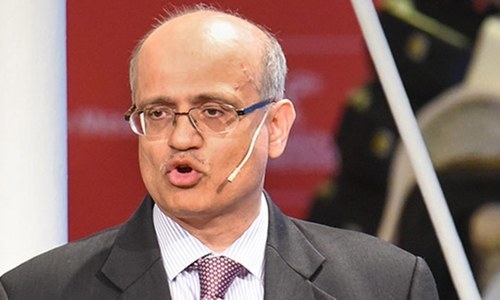THE Pulwama-Balakot crisis of February 2019 brought Pakistan and India close to war, and as an explosive interview given by a former governor of held Kashmir has revealed, the stand-off was cunningly milked by the BJP government in New Delhi.
The crisis was sparked after a deadly militant attack on an Indian paramilitary facility in Pulwama, located in occupied Kashmir. This incident started to spiral into a bigger situation, as India launched ill-advised air strikes inside Pakistan, hitting what it wrongly said was a ‘militant camp’ in Balakot.
Soon enough, Pakistani and Indian jets faced off against each other and Pakistan downed an Indian aircraft, capturing Indian airman Abhinandan and later returning him to his country after offering him ‘fantastic’ tea.
But as Satya Pal Malik, who was IHK governor during the crisis, recently told veteran Indian journalist Karan Thapar in an interview published by The Wire, the BJP government at the time had tried to hush up certain aspects of the Pulwama episode in order to blame Pakistan — which had denied involvement in the attack — and stir up nationalist fervour to benefit the Hindu nationalist party in the 2019 Indian elections.
Mr Malik says the Pulwama episode was a result of India’s “incompetence”, particularly of the home ministry. He adds that when he discussed the issue with Mr Modi, as well as India’s then security czar Ajit Doval, he was told to keep quiet, which gave him the impression that the prime minister and his acolytes wanted to blame Pakistan for the incident and gain electoral advantages therefrom.
Satya Pal Malik was also critical of Mr Modi’s decision to rescind IHK’s autonomous status, saying the Indian leader was “ill-informed” and “ignorant” about the disputed territory.
As some Indian opposition figures have noted in the aftermath of the Malik interview, when they had raised questions about the Pulwama episode, they had been accused of ‘speaking in Pakistan’s voice’.
Several lessons can be learned from Mr Malik’s revelations. Firstly, incidents of such a sensitive nature should not be used for domestic political gain. The BJP may have sought to use the Pulwama attack to their electoral advantage and succeeded to an extent, but the fact is that Delhi’s reckless actions had set both Pakistan and India on the course to war.
And as former US secretary of state Mike Pompeo has said, both states were on the verge of deploying their nuclear assets following the Pulwama-Balakot events.
Therefore, a Machiavellian ploy to exploit a militant attack could have been the potential trigger for a nuclear exchange. The other lesson is that in case of any serious escalation involving non-state actors, it is best to open the channels of diplomacy and defuse the crisis instead of letting it balloon into a potential conflagration.
Published in Dawn, April 17th, 2023












































Dear visitor, the comments section is undergoing an overhaul and will return soon.